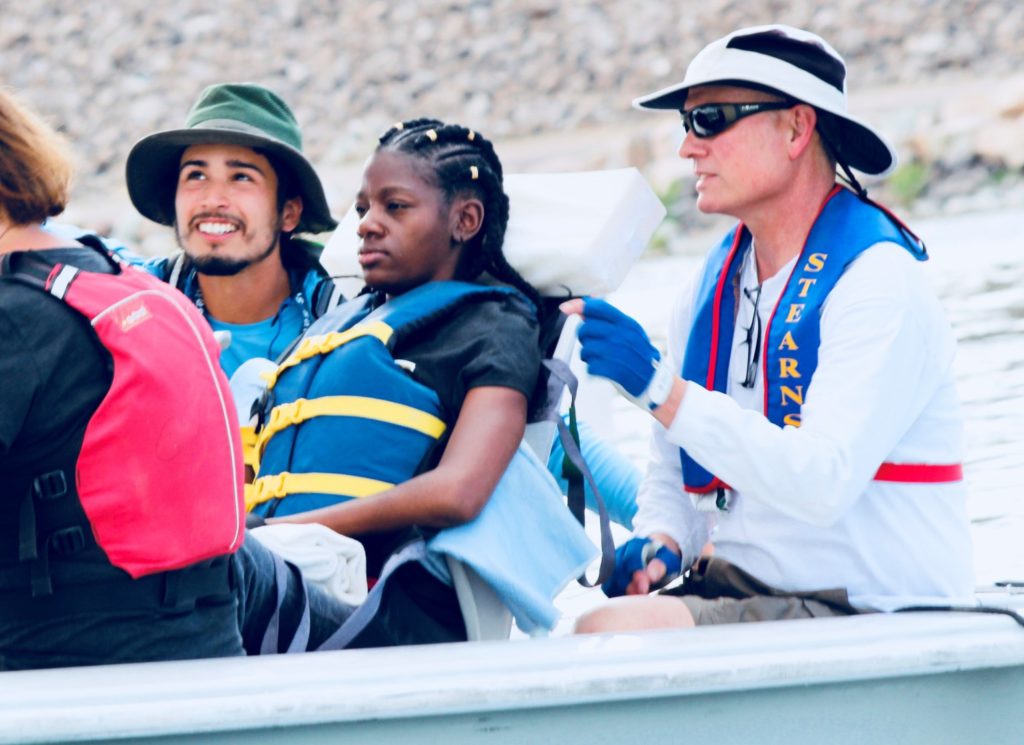
I’d like to tell you a story about a woman named Tiera. Months before I met her, she had a severe accident that left her quadriplegic. Without the use of her body from the chest down, Tiera came down the ramp to the dock in a self-powered wheelchair controlled with a straw. I was amazed. The skill, let alone patience and discipline, it must take to learn this art was awe inspiring. Tiera was a bit timid as this was the first time a miscalculation of breath could potentially lead to a wet fate, but she charged on, dismissing the offer of staff help.
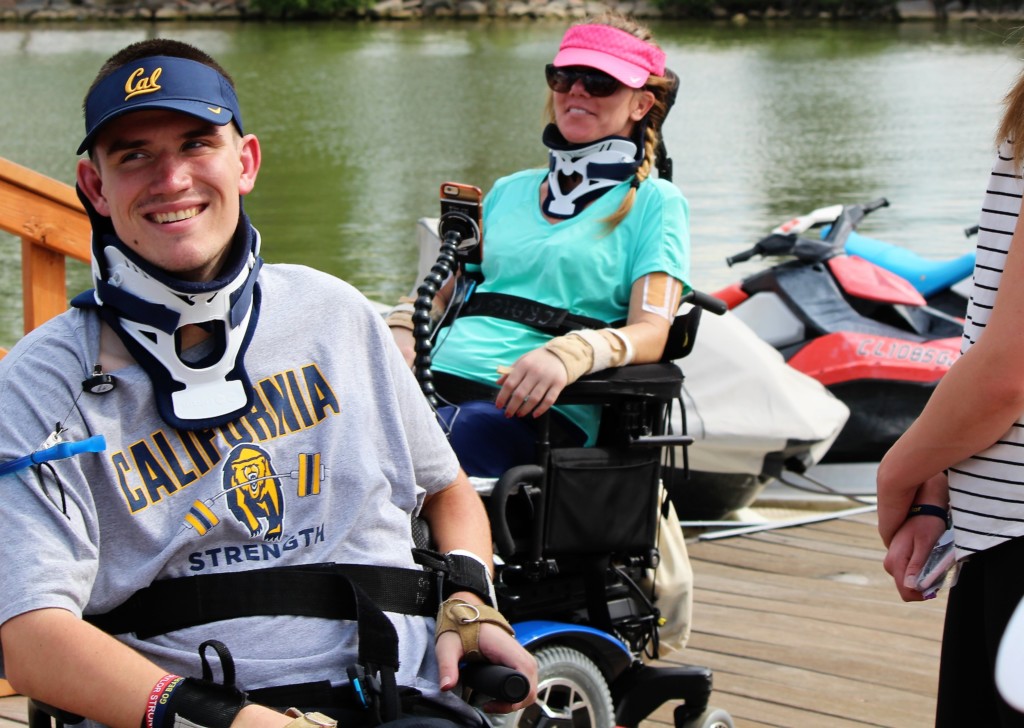 Once at our launching location, I exhaled a sigh of relief as the traverse from one end of the dock to the other suddenly felt like a tightrope walk. Instead of relaxing, Tiera seemed to become more uncomfortable. From my perspective, I began to blame the potentially emotional drain of attempting new tasks in a body that doesn’t work the way it used. But instead, she signaled to the accompanying staff that she needed to cough. Yes, to cough! This was no longer a skill she could complete on her own due to the severity of her spinal cord injury. Doing my best to observe and help without showing the emotion on my face and the sudden appreciation for use of my diaphragm, I watched as the staff did what looked like CPR to her lungs to help clear some build up. This was obviously not their first dance with this task, and it would certainly not be their last.
Once at our launching location, I exhaled a sigh of relief as the traverse from one end of the dock to the other suddenly felt like a tightrope walk. Instead of relaxing, Tiera seemed to become more uncomfortable. From my perspective, I began to blame the potentially emotional drain of attempting new tasks in a body that doesn’t work the way it used. But instead, she signaled to the accompanying staff that she needed to cough. Yes, to cough! This was no longer a skill she could complete on her own due to the severity of her spinal cord injury. Doing my best to observe and help without showing the emotion on my face and the sudden appreciation for use of my diaphragm, I watched as the staff did what looked like CPR to her lungs to help clear some build up. This was obviously not their first dance with this task, and it would certainly not be their last.
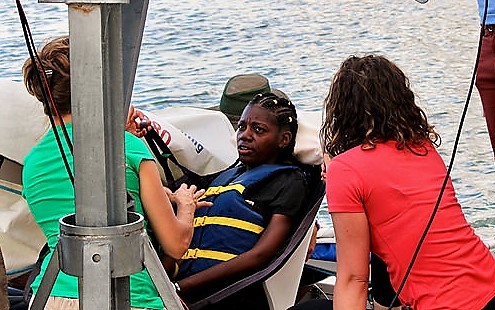 At this point, I was completely astonished by the bravery and courage it took for her be here. To navigate new terrain, to overcome internal obstacles, to even get out of bed this morning! To me, Tiera was a warrior. So when it came time to use our hoist and transfer her from her wheelchair to the boat and she wasn’t eager, I thought to myself, “Girl, you already won the day! Don’t even worry about pushing yourself at this point.” But with a gentle nudge from staff, she eventually came around to the idea of trying sailing out, if only for a few minutes. My jaw could have been swept off the dock.
At this point, I was completely astonished by the bravery and courage it took for her be here. To navigate new terrain, to overcome internal obstacles, to even get out of bed this morning! To me, Tiera was a warrior. So when it came time to use our hoist and transfer her from her wheelchair to the boat and she wasn’t eager, I thought to myself, “Girl, you already won the day! Don’t even worry about pushing yourself at this point.” But with a gentle nudge from staff, she eventually came around to the idea of trying sailing out, if only for a few minutes. My jaw could have been swept off the dock.
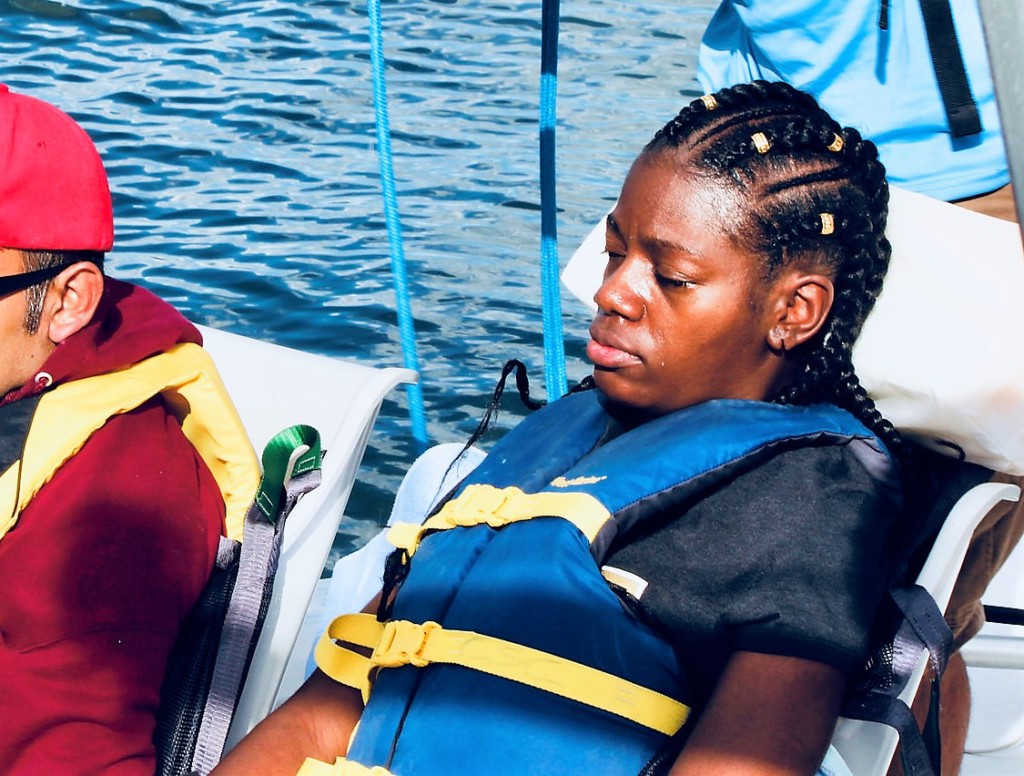 Once in the boat and fully propped and wedged in with cushions, Tiera again looked uncomfortable. This time it was emotional. With a few tears quietly streaming down her cheeks, she reluctantly agreed to continue. As they pulled away from the dock, I tailed them in the motorboat, sure this would be a short sail. Leaving them briefly to touch base with our other boat on the water, I radioed a few minutes later to check on Tiera. The report back from our volunteer still gives me chills: “She’s great. Her eyes are closed and she just told me this is the most at peace she’s felt in a long time.” This time, it was my turn for quiet tears.
Once in the boat and fully propped and wedged in with cushions, Tiera again looked uncomfortable. This time it was emotional. With a few tears quietly streaming down her cheeks, she reluctantly agreed to continue. As they pulled away from the dock, I tailed them in the motorboat, sure this would be a short sail. Leaving them briefly to touch base with our other boat on the water, I radioed a few minutes later to check on Tiera. The report back from our volunteer still gives me chills: “She’s great. Her eyes are closed and she just told me this is the most at peace she’s felt in a long time.” This time, it was my turn for quiet tears.
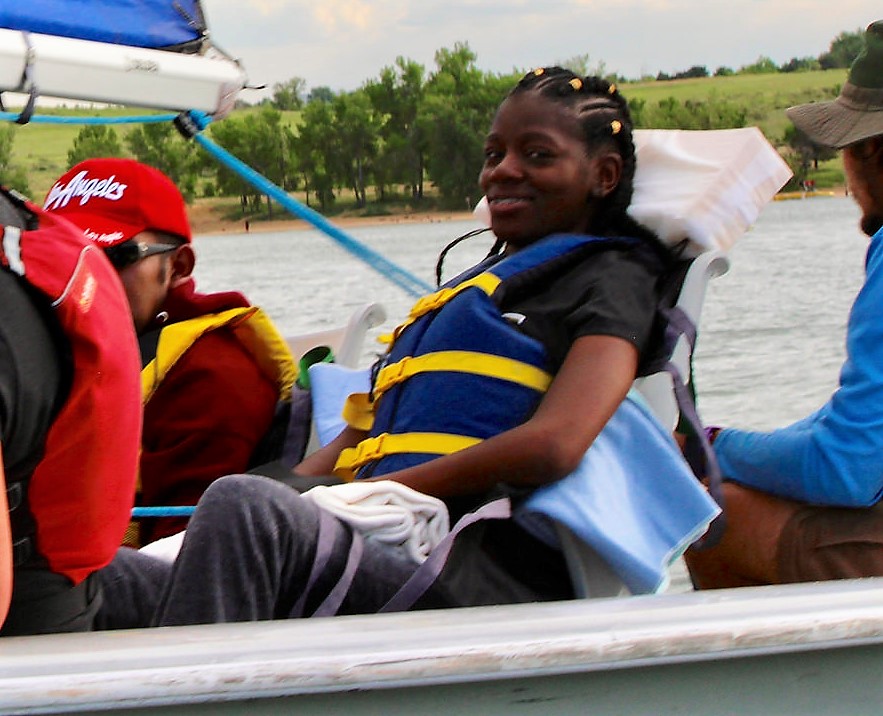 I had never before felt this degree of admiration. Here was a woman younger than me, with a daughter in her pre-teen years, who was newly quadriplegic, and until this week she had no intention of learning how to sail. Yet here she was. Her experience sailing was so powerful that a few weeks later she returned, this time with her daughter, so they could feel at peace together.
I had never before felt this degree of admiration. Here was a woman younger than me, with a daughter in her pre-teen years, who was newly quadriplegic, and until this week she had no intention of learning how to sail. Yet here she was. Her experience sailing was so powerful that a few weeks later she returned, this time with her daughter, so they could feel at peace together.
Please help us continue sharing the experience of sailing with others. Our adaptive program is made possible only through donations from generous people like you. Donate today and change a life tomorrow.




